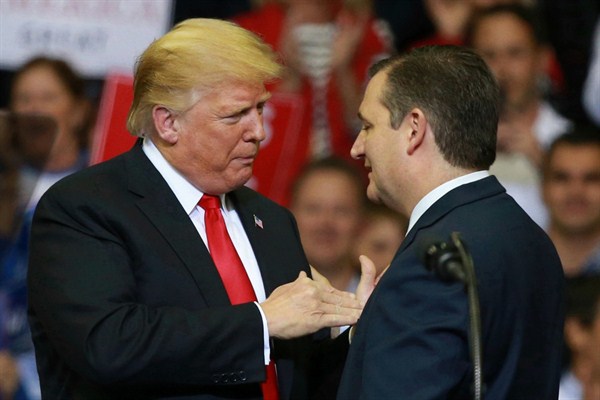If you want to predict the future of international cooperation, you shouldn’t focus on multilateral hubs like New York and Geneva over the next two weeks. Instead, concentrate on Florida, Texas and Missouri. These are some of the states up for grabs in next week’s U.S. midterm elections. The polls could further reshape American and non-American policymakers’ visions of the future of the global system.
The U.S. Congress is one of the most significant players in multilateral affairs, for the simple reason that it signs off on an enormous chunk of international organizations’ budgets. Congress approved roughly $9 billion of funding to the United Nations system in the 2017 fiscal year. That is about one third of the total sum that the U.N. spends worldwide every year.
A hardened core of Congress, including the likes of Sen. Ted Cruz of Texas, is a vocal critic of the U.N. and other multilateral bodies. “Many members,” as the Congressional Research Service noted in a recent report, “have expressed frustration with U.N. bodies or activities that, in their view, are not operating efficiently or lack effective accountability mechanisms.”

